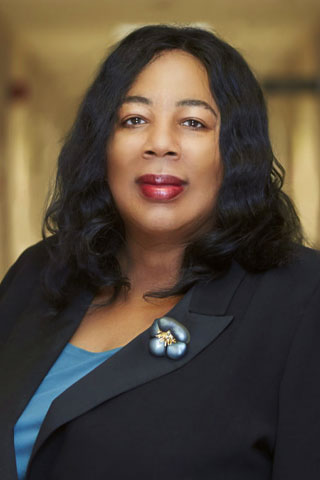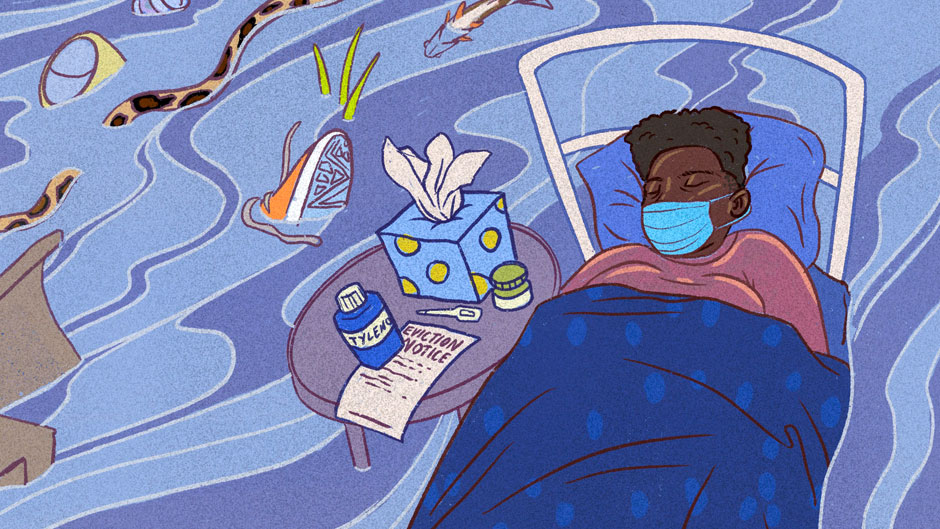While employed as a social worker in a hospital decades ago, Harriet A. Washington came across an old cabinet containing records of patients being considered for kidney transplants, and she was struck by a stark difference. While the files for white patients were thick with medical and social histories, those for Black patients had scant details, except for one word: negro.
That chance discovery would propel Washington’s seminal research into the social, political, environmental, and economic causes of health disparities in America, an exploration that is bringing the renowned medical ethicist and writer to the University of Miami for the first in a series of virtual dialogues ultimately aimed at inspiring a new generation of antiracism and climate justice scholars and advocates.

The author of “Medical Apartheid,” Washington will discuss the intersection of health, climate change, and racial justice in a conversation with Dr. Armen Henderson, assistant professor of medicine at the Miller School of Medicine, on Monday, Feb. 1, at 6:30 p.m. The inaugural dialogue in the Climate and Racial Justice Talk Series, “Cascading Disasters at the Intersection of Underserved Communities,” is open to the University community and the public.
“Marginalized Americans find themselves at the center of cascading disasters—multiple crises happening at once and disproportionately affecting them,” Henderson said. “There is the history of environmental injustice and the looming threat of climate change, systemic racism, and the reinvigoration of white supremacy—and an economic depression and the global pandemic that exacerbates all the aforementioned crises. Harriet Washington has become a truthteller on all these topics.”
A hospitalist at UHealth Tower, Henderson is a member of the team awarded a social justice grant from the University of Miami Laboratory for Integrative Knowledge (U-LINK) to address the intertwined issues of historic racism and climate justice from different disciplinary vantage points. The team’s longer-term goals include the creation of a climate justice course and a community of climate justice scholars and researchers who can collaborate with community partners already engaged in addressing these complex issues.
In addition to Henderson, a community organizer who volunteers to improve the plight of the homeless, the team includes six others: Scotney Evans, an associate professor who focuses on community-engaged action research, and Margo Fernandez-Burgos, a Ph.D. student in counseling psychology, both at the School of Education and Human Development; Abigail Fleming, a lecturer at the School of Law and expert in advancing environmental justice; Katharine Mach, associate professor in the Department of Marine Ecosystems and Society at the Rosenstiel School of Marine and Atmospheric Science and an expert in the risks and options for responding to climate-related hazards; Jennifer Niemann, research analyst for Mach’s Climate Risks and Preparedness lab; and Lynée Turek-Hankins, a Ph.D. student in the Abess Center’s Environmental Science and Policy program.
Niemann, who is directing the team’s marketing and outreach, noted that warming temperatures and rising seas will exacerbate existing housing, health, environmental, and other inequalities that can be traced to historic race-based policies and practices. Chief among them are racial segregation and redlining, which long dictated where people of color could live and excluded them from home loans based solely on the racial composition of their communities.
“These practices have marginalized some groups to lower household wealth and higher-risk areas with consequences that continue today,” Niemann said. “They usually have higher levels of air, water, and soil pollutants; fewer parks and less shade; and more impervious surfaces, like concrete, and older building stock that is hard to cool. All of which leads to significantly higher temperatures. Lower-income areas also have less access to medical care and transportation so racial justice, health justice, energy justice, housing justice, climate justice—they are all connected.”
Yet, as Niemann added, many of the Greater Miami neighborhoods that were born in segregation and disadvantaged by redlining are now the same neighborhoods that developers are gentrifying because, unlike the waterfront communities settled by more affluent whites, they are on higher ground and safer from rising seas.
Members of the antiracism/climate justice team hope the forthcoming conversations they spearhead will not only provide a needed space to elevate the voices of the University’s and the community’s Black, indigenous, and people of color, but compel policymakers to consider their uneven starting points when creating strategies for adapting to or mitigating the adverse effects of climate change.
“We want to educate and inspire people not only to be aware of these issues but to take action now that they know these issues exist,” Niemann said.
For Washington, inaction was impossible after she stumbled on those old kidney transplant files and realized that, even in the 1980s, medical professionals apparently didn’t consider Black people worthy of life-saving treatments. Compelled to examine how the medical system has treated them differently, the social worker-turned-medical journalist began investigating and chronicling the medical establishment’s long and shameful history of exploiting the race—who in the name of research, endured surgery without anesthesia, forced sterilization, and testing of potentially deadly medications.
As Washington has noted, the Tuskegee syphilis experiment, which withheld treatment from African Americans so researchers could follow the progression of the disease, may be the best-known atrocity, but it is hardly alone, or the worst. Her latest book, “A Terrible Thing to Waste: Environmental Racism and Its Assault on the American Mind,” examines how lead poisoning, pollution, infectious disease, industrial waste, and other environmental hazards harm Americans of color in staggeringly disproportionate numbers.
To register for and learn more about the Washington webinar and the other Monday evening dialogues, visit the Climate and Racial Justice Talk Series, which also includes Miami Climate Justice Leadership on Feb. 22; Miami Climate Justice Activism on March 22; and Energy and Housing Justice in a Changing Climate on May 3. All will be held at 6:30 p.m.

